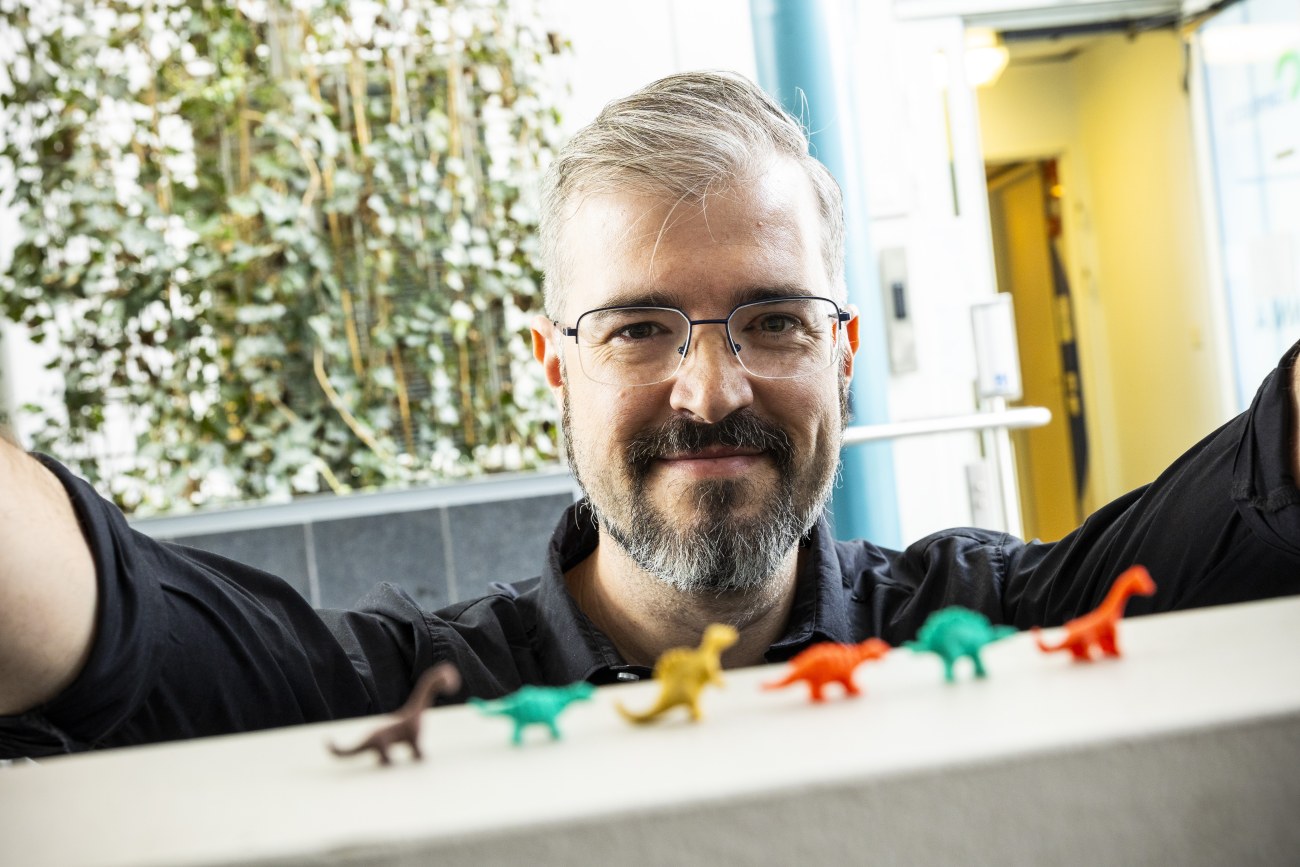Mattia Thibault envisions the future of Extended Realities

An Associate Professor in Translation in the Creative Industries, Mattia Thibault is based in the Language Unit of the Faculty of Information Technology and Communication Sciences (ITC) at Tampere University. Thibault’s work revolves around intersemiotic translation practices, with a key research interest in exploring how translations are conducted in environments where their significance has previously been overlooked
– What intrigues me is how real objects are translated into becoming a part of virtual realities – and vice versa, Thibault says.
Thibault’s research combines games, gamification, semiotics and translations. Traditionally seen as recreating a text from one language to another, Thibault argues that translation is, in fact, a complex process that involves the creationg of meaning and can foster new ways of thinking.
In recent years, the public debate on the metaverse – virtual shared spaces where people can interact – has been largely driven by tech companies, Thibault observes.
– The current discussions on the evolution of extended reality technologies tend to focus on the companies developing their own versions of it, such as the Metaverse developed by Meta, Ambient Intelligence by Amazon, and Spatial Computing by Apple. These companies invariably aim to monetise these spaces, often collecting and selling people’s data, Thibault says.
– Since we cannot simply rely on the visions offered by companies, it is crucial that we imagine new ways to envision a variety of alternative futures and consider what we can learn from them today,” Thibault says.
 Photo: Jonne Renvall
Photo: Jonne RenvallAccording to Thibault, a multiverse is a more likely scenario for the future than a metaverse.
– Instead of a single, all-encompassing metaverse, I expect that in the future we will be living in a multiverse comprising several different services and virtual spaces, Thibault points out.
In fact, Thibault believes we are already partially living in a multiverse, as we interact with numerous virtual environments daily.
– For example, young people habitually move between different platforms, such as Roblox and Fortnite, Thibault says.
Different visions of the future often depict technology as abruptly transforming the entire world, but Thibault is sceptical of such rapid change.
– Extended reality technologies are gradually reshaping our world, rather that revolutionising it in one fell swoop, Thibault explains.
Thibault notes that similar gradual changes are common across different innovations.
– Science fiction is full of dramatic visions of robots revolutionising our lives in the blink of an eye. Yet, robots have unobtrusively already become a part of our everyday lives. For example, robots that carry our groceries home have become a familiar sight on the streets, and their users do not necessarily think they are doing something groundbreaking. Instead of a major upheaval, we see a series of small integrations of technology into the fabric of our everyday life.
Associate Professor Mattia Thibault has been awarded ERC funding for his five-year project titled InterReal: A Systematic Exploration of Interreal Translations in the Media Multiverse. The project is scheduled to commence in January 2025.
The ERC Starting Grant is a grant scheme by the European Research Council, targeted at promising research directors in the early stages of their careers. The grant is intended for establishing a research group and launching independent research activities in Europe.
Starting Grants can be awarded to researchers who have worked for no more than seven years after graduating with a doctoral degree. In addition, grant recipients are required to have a scientific track record that shows great promise and an excellent research proposal.
Author: Hanna Eskelinen





